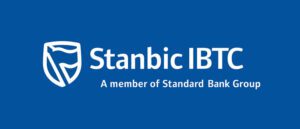
Nigeria grapples with $14.12bn debt burden to W’Bank
Nigeria is currently managing a significant amount of debt owed to the World Bank. According to data obtained from the World Bank’s website, Nigeria is servicing approximately $14.12 billion worth of loans.
These loans are spread across 108 approved projects, with the oldest loan dating back to 1989 during the administration of Gen. Ibrahim Babangida.
One of the oldest loans being serviced is the Multistate Agricultural Development Project (03), which was approved to support agricultural development projects aimed at increasing food production and the income of small farmers.
Although the principal amount for this project was $100.9 million, a total of $106.7 million was disbursed.In more recent years, loans approved in 2018 are also being serviced.
These loans fall under the category of ‘Disbursing & Repaying,’ indicating that funds are being disbursed and repaid simultaneously. One such loan is the $125 million fiscal governance and institutions project, approved on June 27, 2018.
As of the time the data was obtained, approximately $40.17 million had been disbursed for this project. Another loan project under the ‘Disbursing & Repaying’ category is the $750 million Fiscal Governance and Institutions Project, also approved on June 27, 2018.
Under this loan, $737.13 million had been disbursed. Additionally, a second approval for a $750 million loan was granted on December 14, 2020, but disbursement was still ongoing, and no repayment was required yet.
Furthermore, loans approved in 2018 under the Electricity Transmission Project, totalling $364 million and $122 million, are currently being repaid while disbursement continues.
Over the years, Nigeria has successfully repaid approximately 68 loans, amounting to around $4.79 billion. This demonstrates the country’s commitment to fulfilling its financial obligations and managing its debt responsibly.
The management of these loans is crucial for Nigeria’s economic development and the implementation of various projects aimed at improving sectors such as agriculture, governance, and electricity transmission. As the country continues to service its loans, it is essential to ensure effective utilisation of the funds to achieve sustainable growth and development.
The International Bank for Reconstruction and Development and the International Development Association, which make up the World Bank, had, over the years, advanced loans to Nigeria.
The IBRD lends to governments of middle-income and creditworthy low-income countries, while the IDA provides concessionary loans – called credits – and grants to governments of the poorest countries.
Nigeria is usually expected to begin servicing a number of the loans after five years of approval and up to over 30 years.
Since the loans were usually concessional financing, they were below-market-rate finance, and cheaper to service.
For instance, the $800m loan from the World Bank to provide post-petroleum subsidy palliatives for over 50 million Nigerians attracts a maximum commitment charge rate of one-half of one per cent per annum on the Unwithdrawn Financing Balance, and a service charge of three-fourths of one per cent per annum on the withdrawn credit balance.



